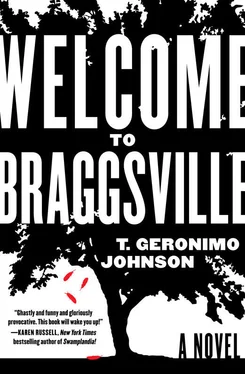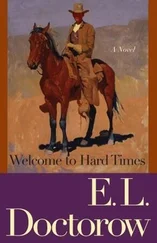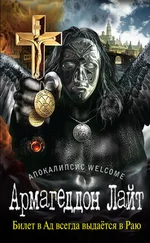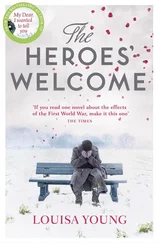However this be, it is plain to a demonstration, that hot countries cannot be cultivated without negroes. What a flourishing country might Georgia have been, had the use of them been permitted years ago? How many white people have been destroyed for want of them, and how many thousands of pounds spent to no purpose at all?
— Anglican preacher George Whitefield, 1751
Wild Bill Hickok toured with a troop of up to one hundred. Three survivors traveled to Little Bighorn every year until they died. Mormons trek the pioneer trail. Gettysburg attracts scores of visitors daily and Washington’s Christmas Crossing celebration continues to draw record numbers. Every Yuletide a thousand windows and lawns are illuminated with nativity scenes. The reenactment is not a Southern creation. We may do it better than most, but it is not a Southern creation. It has always played a key role in Braggsville history. After the Civil War, Congress visited town to witness a reenactment of the Battle of Braggsville as part of a campaign to bring the capital here from Milledgeville. Since then, it has continued as a peaceful event, until now, intoned the newscaster, though Braggsville, you may recall, first came to national attention two years ago when local students protested the two-prom system. I have in the studio with me Otis Hunter, mayor of the Gully, and Daron Davenport, the Braggsville native whom many hold responsible for the recent tragedy.
Daron cringed when she said tragedy. Everybody knows better. The first fact they learned in his course on Greek theater (or in any introductory lit theory class) was that a tragedy arose when one faced two competing claims of equal magnitude. Hence, when Antigone is faced with either abandoning her brother Polynices’s rotting corpse to cook the air in accordance with Creon’s dictates or burying her sibling in accordance with family duty, she faces tragedy. When a drunken idiot falls asleep at the wheel or knob or whatever it is and the subway crashes, that is not tragedy. When the term was first explained, Daron appreciated the certainty of the definition and the commitment to exactitude the professor’s lecture symbolized, making possible the surety that had so long eluded him. The scales had fallen from his back, as had the fin. From that day forward, whenever he heard the word tragedy, he could tell a lot about a person. The only catch was that he himself did not believe in tragedy. He doubted one would ever face two claims of equal importance. Fuck Creon, Antigone buried Polynices. Family first. Abraham was hands up, slim blade winking, when the Lord stayed his arm. God first.
Take this interview, Daron thought, as yet another example that tragedy is a myth. Exhibit A: Sheriff instructs Daron to win the city back over, but Daron has given up on that. Pride is all he has left; however, when his father says it would be a show of good faith to appear with Otis, Daron agrees. He may be swallowing his pride, but it’s important, as his father says, to let Otis know that he wasn’t racist, isn’t racist, to let the world know that Braggsville is not a racist town. His family is more important than his pride. There was no tragedy. There never could be. No two claims upon the self could be equal. Daron couldn’t care less about Sheriff or Otis.
Moreover, before Sheriff made him do the interview, Daron hadn’t known that the Gully had its own mayor, and wondered if Otis was the real mayor, or the so-called mayor, in the same way everyone called Sheriff either The sheriff or plain Sheriff, even though he was only the chief of the local police and entrusted with no county-wide authority. None of this had bothered him before, much as he’d always accepted that they called it a mill even though it was a hot air factory.
In all previous appearances, Otis had quietly insisted that he was reserving his comments about young Mr. Davenport for the day they met in person. Now they were together, in this makeshift studio that NBS Charlie-rigged in the newly constructed room at Lou’s. Cameras and lights were mounted on tripods and dark quilted fabric draped the walls. Their set consisted solely of three chairs grouped around a central table. The newscaster sat in the middle and her guests to either side. (Rheanne was only yards away, probably reading a teen-dream magazine. Would she watch this, the stringy-maned, guitar-headed bitch? She better. It was live and soon as Daron was given the chance to speak, he’d tell about sorry all right. He’d tell them how sorry they were for lying about him at Lou’s and the Awful Waffle. He’d tell them all. Give them lots to holler ’bout.)
Otis looked fifty, his neatly cut hair and mustache both given over to gray. He wore a blue suit and a yellow tie. Cal colors, thought Daron. The most notable thing about Otis, though, was his expression. He smiled at Daron from the moment he sat down until the moment the newscaster completed the introductions, at which point he rose, walked around the table and gestured for Daron to rise to his feet, which Daron did only after a moment’s delay. He didn’t relish being struck on live television, but perhaps that would be the best thing that could happen to him now. A little victimhood would definitely sweeten the stew. Instead, Otis embraced him warmly and kissed him wetly on each cheek.
Young man, my condolences for the loss of your friend. He made the greatest sacrifice, and I want to thank you, and — he rustled open a sheet of paper — Louis Chang, Charles Roger Cole, and Candice Marianne Chelsea for what you have done. The children are indeed the future and you young folk have changed the future because you had the courage to do what none of us have ever done, but always wanted to do.
Otis turned to the camera as if to a long-lost friend and withdrew from his inside breast pocket a second sheet of paper. He glanced at the newscaster, who nodded, before he unfolded it and began to speak.
In the winter of 1864, Braggsville was the last supply stop before the Confederate forces began the steady climb to Atlanta. The troops were wore out something wicked, spiny and sharp with hunger. In Braggsville they were troughed and shod, and their numbers and confidence bolstered when Bragg himself sent his three young sons along. The men of the Gully had been conscripted for months. Atlanta burned, and within three months of sending off his sons, all three were killed in valiant action, we are told.
Bragg never forgave Lee for surrendering at Appomattox and swore that if it was the last thing he did, he’d see the capital moved to a city with some backbone, a town with heart, the true South, the real center of Georgia: Braggsville. Bragg also complained about the deserters amongst the Atlanta upper set, a show of cowardice that only furthered his conviction that Braggsville should be the new capital of Georgia.
First, John B. always said, this here is the peach pit. It’s right damn near the center of the state, far closer to the actual center than Atlanta. That vice pit sits up there all smug like it’s natural for us to journey nearly to South Cakalacky to see to our own affairs. Second, we’s all here. Every single one of us, born and reared or transplanted to this town is still here. Ain’t been no deserters. But that weren’t true.
In sooth, one farmer-now-soldier turned coat and fled west, beyond the U.S. borders. They said he was originally a northerner, and that type of behavior was to be expected of them because they just couldn’t shirk their crude and dishonorable ways. The extreme weather and crowded city life made them cold, untrustworthy, prone to illness, and plumb without honor, not to mention poor cooks. But that weren’t true neither.
When Bragg passed, they erected a statue in his honor right beside the watchtower — underneath which his wife is buried — in the turnabout in the center of town. Over three meters tall, they reckoned if he was alive he could nearly see Atlanta. As it is, he’s certainly pointed in that direction. They’d meant for it to signify that he was challenging the citizenry, pointing out their town’s future as the one true capital of Georgia, but, unfortunately, it looked like he was kindly indicating the direction to some wayward traveler who had inquired as to the quickest route to Atlanta, and when I-75 was later built he seemed to be pointing to it, and, sadly, it seemed that every year more and more youngsters took his advice and moved to the city for the manufacturing jobs on the Southside and the domestic work on the Northside (that which wasn’t reserved for the blacks).
Читать дальше
Конец ознакомительного отрывка
Купить книгу












